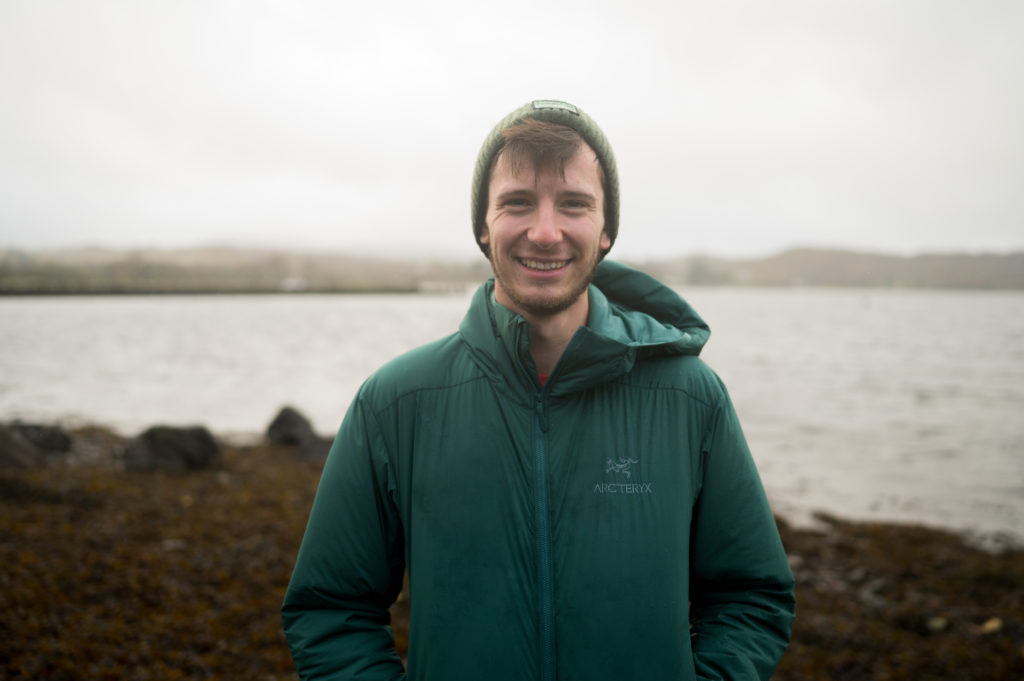
I am a marine biologist primarily interested in the impacts of ocean acidification and warming on marine environments, particularly at an organismal and physiological level. I have spent the last 4 years working on investigating the impacts of marine stressors on various marine organisms, from microplastics to ocean acidification, using nuclear techniques, and my current research is now focused on the effects of ocean acidification and warming on sea urchins and their ability to calcify and regenerate their tissues in a multistressor environment.
Multistressor impacts of ocean acidification and warming on regeneration and biomineralisation in coastal sea urchins
PhD aims:
This project will focus primarily on two inter-connected questions:
- How will sea urchins remineralise and regenerate their tissues in a future multi-stressor environment?
- Are the effects of these multiple climate-change associated stressors additive, antagonistic, or synergistic?
PhD objectives:
As the marine environment continues to warm and absorb atmospheric carbon dioxide, marine life is under increasing pressures to adapt to multiple stressors to survive. Calcifying organisms may be under immediate threat as the oceans may have a reduced pH buffering capacity, which can lead to an undersaturation of calcite, a mineral vital to these organisms in order to grow and calcify. The mechanisms that these organisms may employ to cope with the low pH and elevated temperatures is currently unclear.
In particular, my research is on the effects of ocean acidification and warming on sea urchins and their ability to calcify and regenerate their tissues in a multistressor environment. The regenerative capabilities of these echinoderms are extensive, from calcified spines to regenerated tissues and nerves, though the extent of this ability and how it is affected by increased environmental stress is yet to be fully understood. I will be using an interdisciplinary approach, combining ecology and lab-based aquarium experiments with specialised molecular analytical techniques to investigate the nature of sea urchin calcification and regeneration of spines, tube feet and nerves under these multiple environmental stressors.
Contact details:
Email: [email protected]
Institutional profile: www.sams.ac.uk/people/research-students/angus-taylor/
Publications:
Bermudez J.R., Metian M, Oberhaensli F, Taylor A, Swarzenski P (2021). Preferencial grazing and repackaging of small polyethylene microplastic particles (≤ 5 μm) by the ciliate Sterkiella sp. Marine Environmental Research 166: 105260. doi: 10.1016/j.marenvres.2021.105260.
Pyl M, Danis B, Oberhaensli F, Taylor A, Swarzenski P, Metian M (2021). An effective method to assess the sorption dynamics of PCB radiotracers onto plastic and sediment microparticles. MethodsX 8(9): 101396. doi: 10.1016/j.mex.2021.101395.
McNicholl C, Oberhaensli F, Taylor A, Holmerin I, Swarzenski P, Metian M (2021). Deoxygenation reduces growth rates and increases assimilation of essential trace metals in gilthead seabream (Sparus aurata).Environmental Pollution 288: 117786.
McNicholl C, Koch M, Swarzenski P, Metian M, Oberhaensli F, Taylor A, Gomez-Batista M. (2020).Ocean acidification effects on dissolution and calcification in tropical reef macroalgae.Coral Reefs. doi:10.1007/s00338-020-01991-x.
Belivermis M, Besson M, Swarzenski P, Oberhaensli F,Taylor A, Metian M. (2020) Influence of pH on Pb accumulation in the blue mussel, Mytilus edulis.Marine Pollution Bulletin 156: 111203.
Besson M, Jacob H, Oberhaensli F, Taylor A, Swarzenski P, Metian M. (2020). Preferential adsorption of Cd, Cs and Zn onto virgin polyethylene microplastic versus sediment particles. Marine Pollution Bulletin 156: 111223.
Aminot Y, Lanctot CM, Bednarz VN, Robson WJ, Taylor A, Ferrier-Pages C, Metian M, Tolosa I. (2020). Leaching of flame-retardants from polystyrene debris and its effects on coral. Marine Pollution Bulletin 151: 110862.
